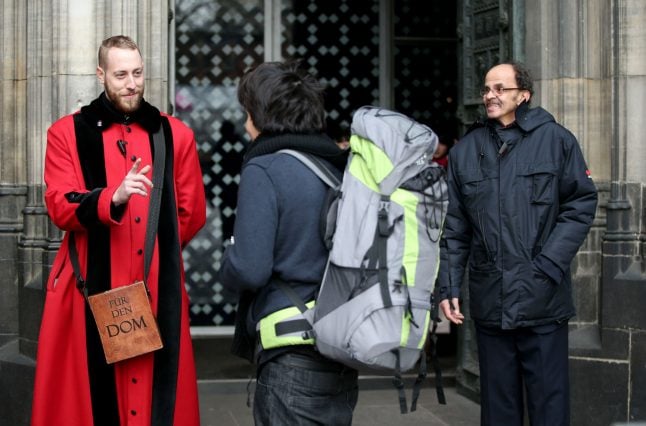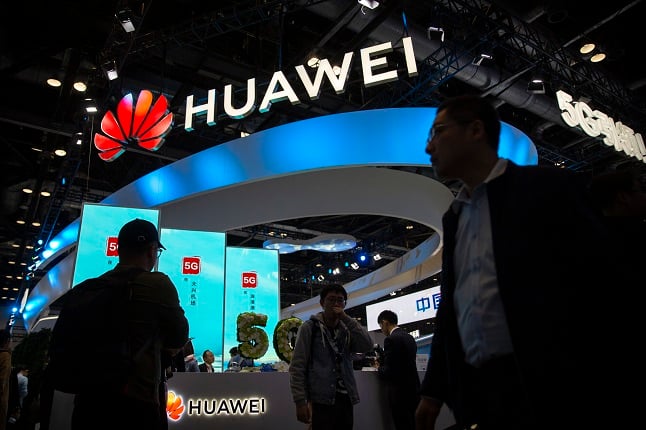Shaking his head, an old man turns back from the entrance to the Cologne cathedral. A red-robed guard has just told him he isn’t allowed to bring the suitcase he is dragging behind him inside.
“I only wanted to go up to the Mary altar to light a candle,” complains the man, who introduces himself as Josef and whose accent immediately gives him away as a local.
“I’ve been living in southern Germany for 50 years now and every time I've come back to my old hometown it has been possible to take a suitcase into the cathedral – until today.”
On Wednesday Cologne Cathedral brought in stricter security rules for visitors, meaning that no one is allowed to enter the church's huge interior with a suitcase, a travel bag or a rucksack.
The measures have been justified as a response to a heightened terror threat in Germany.
Over the past 12 months, the country has been hit by several terror attacks, the worst of which killed 12 people in December in Berlin.
The Isis-linked assaults have led to a tightening of security at public events such as Oktoberfest and Karneval, and at places where large groups of people gather.
But the Cologne security measure is causing particular frustration because the cathedral lies directly next to the central train station. The two buildings are so close to each other that in the church choral room it's possible to hear the schedule announcements at the station.
Countless travellers who have a few minutes between trains take a moment to visit the medieval church – one of Germany's most popular tourist attractions.
Watchman Hans Rögels reckons that well over ten percent of the 20,000 daily visitors to the cathedral coming carrying bags.
Gerd Bachner, the dean of the cathedral, says he was expecting the negative reactions. He explains that it was no easy decision to ban bags. But he said that as far as he could see, most people understood why the measures had been brought in.
Heiner Drees from Gütersloh is another visitor who was turned away on Wednesday.
“I think it’s stupid,” he complains. “It’s going too far when, as a German citizen, I can’t visit our holy places. They should at least put in some lockers. They’ve certainly got enough money.”
At the same time he is sure that the church will be hit by a drop in visitors.
“Almost everyone lights a candle for 50 cents. They won’t have that any more.”
Some families take to leaving one of their group outside with the bags. One trusting tourist leaves his bag with a beggar sitting near the northern entrance.
Josef, the old man visiting from southern German, has also had an idea.
“Can you look after my bag?” he asks. “I’m only going in to light a candle.”
Just before he disappears inside the northern entrance, he turns around.
“Young man, I may already be 84 years of age. But I still can run a bit. You won’t get away from me with the suitcase that quickly!”
By Christoph Driessen



 Please whitelist us to continue reading.
Please whitelist us to continue reading.